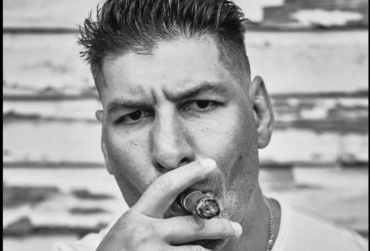Rebbetzin Henny Machlis, Who Taught Me The Secret to Holiness
Long ago, when I was a very young child, I came to know a teenage girl named Henny Lustig. From my deeply naive perspective, she seemed vibrant and alive in a way I had never before encountered. She was enthralled by the world around her and the people populating it. It wasn’t hard to get caught up in her infectious positivity. She prayed in our tiny little synagogue (back then, just the living room of the rabbi’s house) and she viewed me – only six, if that – as having the same unrestricted potential that she did. My prayers mattered the most, she told me, because Hashem loves the tefillos of little children. When my brothers and I had enough of the liturgy, she invented games to keep us quiet. I don’t remember the rules – something about fruits and chairs and hiding under chairs, and never giggling loud enough for anyone else to hear us (which I remember being unbearably hard) — because whether we opted to pray or not, she showed me that the community’s prayer is deeply consequential and must not be disturbed. She taught me those primary religious lessons, and yet she was also cool enough that I wanted to grow up to be just like her. She was curious, colorful, funny, and confident and she seemed to me at least to believe that she could do anything she set her mind to. She was endlessly real and relatable.
In time, she grew up, went to college, got married, and made aliyah. Then I grew up and negotiated my own relationship to the world around me. I heard about her from time to time, and while her lessons about positivity, prayer, and the ability to actualize into a unique and valuable self dimly continued to resonate with me, the majority of my memories of Henny herself receded into the ether.
Fast-forward a couple of decades, and I will readily admit that these days, tefilla and I have a sometimes ambivalent relationship. My frenetic life often does not grace me with enough mental space for the luxury of considered prayer. I am the prototype sandwiched mother – sleep-deprived caretaker to the generations above and below me – at times praying absentmindedly, sometimes praying angrily, and sometimes – rendered catatonic by the Sisyphean weight of mundane obligations – not praying at all. Maybe my frenzied life was showing me that I was not endlessly capable of doing everything? Maybe my faith in a limitless potential was just childish.
But here’s the thing. While I wasn’t paying attention, Henny Lustig grew up to become Henny Machlis. The rebbetzin known worldwide for hosting hundreds at her table. Every week – oops, every day. People whom you or I wouldn’t even let into our home. She ministered to the mentally ill and emotionally fraught. And she was the mother of a large family where her children somehow came first. She actually succeeded in balancing everything. In time, she became renowned worldwide as the Sarah Imeinu of our generation – our very own Matriarch Sarah. At some point, my cool and relatable role model grew into a universally acknowledged tzaddekes (righteous woman). And I was crushed to my core to hear that Rebbitzin Henny Machlis passed away recently – after struggling mightily with a long illness.
I used to think that holy people are just born that way, and they are bestowed some incandescent grace that makes them extraordinary. Holy people are not funny and they definitely are not cool. They certainly are in no way similar to regular people, because they must exist on some other holier aspect of existence. That, I guess, got me off the hook. My prayers were merely plain prayers –they could only be special if I was extraordinary. They were perhaps expendable and certainly at most not very consequential in the scheme of things.
My mother happened to run into Rebbetzin Machlis last spring… visibly unwell but with the same contagious grin. Her entreaty was passed on to me: “Daven for me.” Was that because she thought my prayers were not plain? Because she believed everyone to be a tzaddekes just like her? She thought our prayer – my prayer – really, deeply matters. A woman who was universally acknowledged to be extremely holy was asking for my pedestrian tefillos.
In sum, I learned a universe about how to be me from both Henny Lustig and Rebbetzen Henny Machlis. Each taught me that observant Jewish women can fully actualize their own potentials; that we each can choose to make a tangible difference, and that our voices matter in both the physical world and the spiritual world. It is not naive to think that we have inside of us the potential to change the world for the better. That so long as we don’t lose faith in our own bottomless ability, we can accomplish exceptional things. And the most powerful lesson of all: that maybe righteousness resides in regular people who don’t stop believing in their unlimited potentials. Holy people are not always otherworldly. That each of us can perhaps be nurtured to become a tzaddekes in our own unique image. And that to me is the most precious – if belated – lesson of all. In this way, may her memory be a powerful and abundant blessing to each of us.
If you found this content meaningful and want to help further our mission through our Keter, Makom, and Tikun branches, please consider becoming a Change Maker today.






